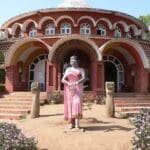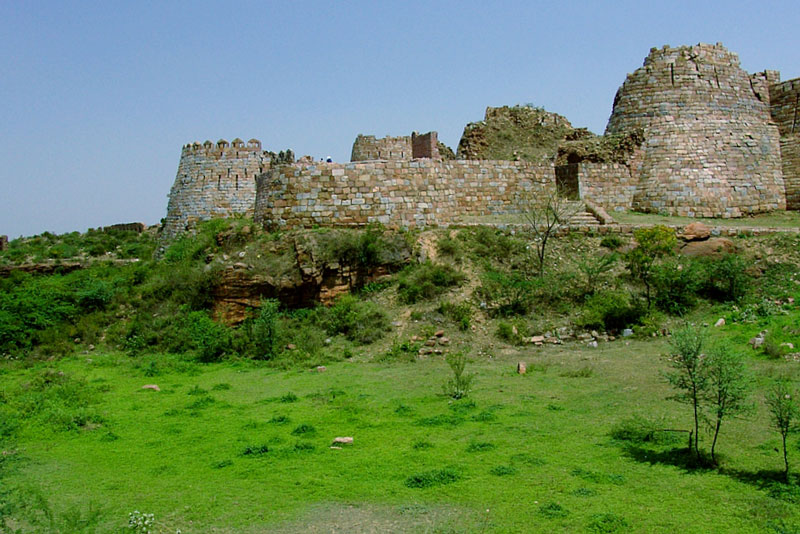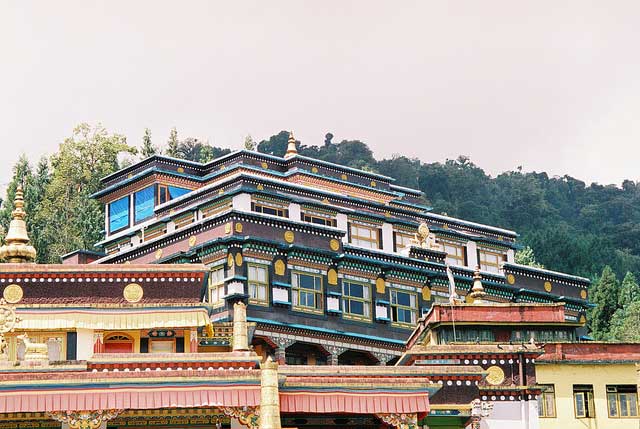Mount Abu, situated in the Aravalli Range in the western Indian state of Rajasthan, is a tranquil hill station renowned for its scenic beauty, rich cultural heritage, and spiritual significance. It stands tall as the oasis of Rajasthan, offering respite from the scorching desert heat with its cool climate and lush greenery.
Places to Visit in Mount Abu
Famous Tourist Spots
Mount Abu is adorned with several iconic landmarks that attract tourists from far and wide. The crown jewel among them is the renowned Dilwara Temples, a complex of exquisitely carved Jain temples dating back to the 11th and 13th centuries. These temples are architectural marvels, showcasing intricate marble carvings and ornate craftsmanship. Other must-visit spots include Nakki Lake, a serene man-made lake surrounded by hills, and Guru Shikhar, the highest peak in the Aravalli Range offering panoramic views of the surrounding landscape.
Natural Attractions
Nature enthusiasts will find solace in Mount Abu’s picturesque landscapes and verdant surroundings. Sunset Point and Honeymoon Point are popular vantage points offering breathtaking views of the sun setting behind the Aravalli hills. The lush greenery of the Arbuda Mountains and the tranquil ambiance of Trevor’s Tank, a serene reservoir nestled amidst rocky terrain, further add to the charm of the hill station.
Historical Sites
Steeped in history, Mount Abu boasts a rich heritage reflected in its ancient monuments and forts. Achalgarh Fort, an imposing structure built in the 14th century by Maharana Kumbha of Mewar, stands as a testament to the region’s glorious past. The fort houses several temples, including the Achaleshwar Mahadev Temple and the Kantinath Jain Temple, offering insights into the architectural prowess and religious significance of the bygone era.
Things to Do in Mount Abu
Outdoor Activities
Adventure enthusiasts can partake in a myriad of outdoor activities amidst the picturesque landscapes of Mount Abu. Trekking trails like the one leading to the summit of Guru Shikhar offer thrilling experiences amidst nature’s bounty. Rock climbing, rappelling, and horse riding are other popular activities that allow visitors to explore the rugged terrain and scenic beauty of the region.
Cultural Experiences
Mount Abu is a melting pot of diverse cultures and traditions, offering visitors a chance to immerse themselves in the vibrant tapestry of Rajasthani culture. The annual Summer Festival, celebrated with great fervor in May, showcases traditional music and dance performances, colorful processions, and exciting sports activities. Tourists can also visit the Brahma Kumaris Spiritual University and Museum to learn about the teachings of Brahma Kumaris and explore exhibits on spirituality and meditation.
Shopping
The bustling markets of Mount Abu beckon shoppers with their eclectic array of handicrafts, artifacts, and souvenirs. Nakki Lake Market and Sadar Bazaar are popular shopping destinations where visitors can browse through a fascinating collection of Rajasthani handicrafts, embroidered textiles, and leather goods. The Government Handicraft Emporium is another treasure trove offering authentic Rajasthani artifacts, pottery, and tribal jewelry.
Climatic Conditions in Mount Abu
Nestled at an altitude of 1,220 meters above sea level, Mount Abu enjoys a pleasant climate throughout the year. Summers are mild and refreshing, with temperatures ranging from 23°C to 33°C, making it an ideal escape from the scorching heat of the plains. Monsoons bring moderate to heavy rainfall, rejuvenating the lush greenery of the region. Winters are cool and enjoyable, with temperatures dropping to 0°C to 25°C, offering a perfect ambiance for sightseeing and outdoor activities.
Best Time to Visit Mount Abu
The best time to visit Mount Abu is during the months of February to June and September to December when the weather is pleasant and conducive for outdoor activities. The summer months of March to June are ideal for trekking, sightseeing, and exploring the natural beauty of the region. Monsoons, from July to September, bring refreshing showers, enhancing the scenic charm of Mount Abu. Winters, from October to February, are perfect for leisurely strolls, bonfires, and enjoying the misty landscapes draped in fog.
How to Reach Mount Abu
By Air
The nearest airport to Mount Abu is Maharana Pratap Airport in Udaipur, located approximately 185 kilometers away. From the airport, visitors can hire taxis or avail of bus services to reach Mount Abu. Flights to Udaipur are available from major cities like Delhi, Mumbai, and Jaipur.
By Train
Mount Abu is well-connected by rail to major cities like Delhi, Mumbai, and Ahmedabad. The nearest railway station is Abu Road Railway Station, situated at a distance of around 28 kilometers from Mount Abu. Regular trains ply between Abu Road and cities across India, offering convenient transportation options for travelers.
By Road
Mount Abu is easily accessible by road, with well-maintained highways connecting it to cities like Ahmedabad, Udaipur, and Jaipur. State-run buses, private taxis, and self-drive cars are available for commuting to and from Mount Abu. The journey by road offers scenic views of the Aravalli hills and picturesque landscapes, making it a memorable travel experience.
History of Mount Abu
Mount Abu boasts a rich historical legacy dating back to ancient times. It served as a summer retreat for Rajput kings and princes who sought refuge in its cool climate and lush surroundings. The region was also a sacred pilgrimage site for Jains, as evidenced by the magnificent Dilwara Temples built between the 11th and 13th centuries. Over the centuries, Mount Abu has witnessed the rise and fall of several dynasties, each leaving its imprint on the cultural landscape of the hill station.
Cuisine of Mount Abu
The cuisine of Mount Abu is a delightful fusion of Rajasthani flavors and influences from neighboring regions. Visitors can savor a delectable array of traditional dishes, including Dal Baati Churma, a hearty Rajasthani meal consisting of lentil curry, baked wheat bread, and sweetened wheat balls. Other popular delicacies include Gatte ki Sabzi, a spicy gram flour curry, and Ker Sangri, a tangy vegetable preparation made from desert beans and berries. Restaurants and eateries in Mount Abu serve authentic Rajasthani cuisine alongside Indian, Chinese, and Continental fare, catering to diverse tastes and preferences.
Shopping in Mount Abu
Shopping in Mount Abu is a delightful experience, with its vibrant markets brimming with colorful handicrafts, textiles, and souvenirs. Nakki Lake Market, situated near the picturesque lake, is a shopper’s paradise offering a wide range of Rajasthani handicrafts, embroidered fabrics, and tribal jewelry. Sadar Bazaar, located in the heart of the town, is another popular shopping destination known for its leather goods, antique artifacts, and traditional Rajasthani attire. The Government Handicraft Emporium showcases a curated collection of handcrafted items, including pottery, paintings, and woodwork, making it a must-visit for discerning shoppers.
Accessibility and Accommodation Options
Mount Abu offers a plethora of accommodation options to suit every budget and preference, ranging from luxury resorts and heritage hotels to budget guesthouses and homestays. Visitors can choose from a variety of staying options, each offering warm hospitality and modern amenities amidst serene surroundings.
Hotels and Resorts
Some of the prominent hotels and resorts in Mount Abu include The Colonial Manek Manor, a colonial-style heritage property offering luxurious accommodations and personalized services. Hotel Hilltone is another popular choice known for its scenic location, spacious rooms, and recreational facilities. Cama Rajputana Club Resort, nestled amidst lush greenery, offers a tranquil ambiance and a range of leisure activities for guests to unwind and rejuvenate.
Guesthouses and Homestays
For travelers seeking a more intimate and immersive experience, guesthouses and homestays in Mount Abu provide a glimpse into the local way of life and hospitality. These cozy accommodations offer personalized services, home-cooked meals, and opportunities to interact with locals, making for a memorable stay experience.
Nearby Restaurants
Mount Abu boasts a vibrant culinary scene with a plethora of restaurants, cafes, and eateries serving a variety of cuisines to cater to diverse tastes and preferences. Mulberry Tree Restaurant, located near Nakki Lake, is renowned for its multi-cuisine fare and serene ambiance. Arbuda Restaurant, overlooking the Arbuda Mountains, offers a fine dining experience with panoramic views of the surrounding landscape. Jodhpur Bhojanalaya is a popular eatery known for its authentic Rajasthani thali, featuring an array of traditional dishes served in typical Rajasthani style.
Tourist Map of Mount Abu
A tourist map of Mount Abu is readily available at various tourism centers, hotels, and information kiosks, providing detailed information about the hill station’s attractions, viewpoints, and important landmarks. The map helps visitors navigate the town and plan their sightseeing itinerary, ensuring a memorable and hassle-free travel experience.
Distance From Major Cities
Mount Abu is strategically located, offering easy accessibility from major cities across India. It is approximately 164 kilometers from Udaipur, the nearest major city, and 221 kilometers from Ahmedabad, a bustling metropolis in Gujarat. The hill station is approximately 764 kilometers from Delhi, the capital city of India, making it easily accessible via road, rail, and air.
Nearby Places of Interest
In addition to its own attractions, Mount Abu serves as a gateway to several nearby destinations that offer additional sightseeing opportunities and experiences. Guru Shikhar, the highest peak in the Aravalli Range, is located just a short drive away from Mount Abu and offers panoramic views of the surrounding landscape. Abu Road, a bustling town situated at the foothills of Mount Abu, is known for its ancient temples, vibrant markets, and cultural heritage. Ambaji, a pilgrimage town located approximately 45 kilometers from Mount Abu, is famous for the Ambaji Temple dedicated to the goddess Amba, attracting devotees from far and wide.
Tourist Attractions Beyond Mount Abu
Travelers exploring Mount Abu can venture beyond the hill station to discover nearby attractions that offer unique experiences and insights into the region’s cultural and natural heritage. Ambaji Temple, situated in the foothills of the Aravalli Range, is one such destination known for its religious significance and architectural grandeur. Guru Shikhar, the highest peak in the Aravalli Range, offers breathtaking views of the surrounding landscapes and is a popular trekking destination for adventure enthusiasts. Achalgarh Fort, a historic fortification located approximately 8 kilometers from Mount Abu, is another notable attraction known for its ancient temples, impressive architecture, and panoramic vistas.
Travel Tips for Visitors
- Carry Adequate Warm Clothing: While the days may be warm, evenings in Mount Abu can get chilly, especially during the winter months. It is advisable to carry warm clothing such as sweaters, jackets, and shawls to stay comfortable and cozy.
- Stay Hydrated: The hill station’s cool climate and scenic beauty may tempt you to explore outdoors for long durations. Ensure you stay hydrated by carrying water bottles and staying hydrated throughout the day, especially during summers.
- Sun Protection: The sun can be intense, even in the cooler climate of Mount Abu. Protect yourself from sunburn and dehydration by applying sunscreen with a high SPF, wearing sunglasses, and carrying a hat or umbrella for shade.
- Respect Local Customs: Mount Abu is a sacred destination with several temples and religious sites. It is important to dress modestly and respect local customs and traditions while visiting religious places. Remove your footwear before entering temples and refrain from taking photographs in prohibited areas.
- Seek Local Guidance: To make the most of your visit to Mount Abu, consider hiring authorized guides who can provide valuable insights into the region’s history, culture, and attractions. They can help you navigate through the town, suggest off-the-beaten-path experiences, and ensure a safe and memorable travel experience.
Frequently Asked Questions (FAQs)
- What are the must-visit attractions in Mount Abu?
- The must-visit attractions in Mount Abu include the Dilwara Temples, Nakki Lake, Guru Shikhar, Achalgarh Fort, Sunset Point, and Honeymoon Point.
- When is the best time to visit Mount Abu for trekking and outdoor activities?
- The best time for trekking and outdoor activities in Mount Abu is during the months of February to June and September to December when the weather is pleasant and conducive for adventure sports.
- How far is Mount Abu from Udaipur, and how can I travel between the two cities?
- Mount Abu is approximately 164 kilometers away from Udaipur. Visitors can travel between the two cities by road, with regular bus services and taxis available for commuting.
- What are some famous dishes to try in Mount Abu?
- Some famous dishes to try in Mount Abu include Dal Baati Churma, Gatte ki Sabzi, Ker Sangri, and Rajasthani Thali, showcasing the rich culinary heritage of Rajasthan.
- Are there any wildlife sanctuaries or nature reserves near Mount Abu?
- Yes, Mount Abu is surrounded by several wildlife sanctuaries and nature reserves, including Mount Abu Wildlife Sanctuary, Trevor’s Tank, and Jessore Sloth Bear Sanctuary, offering opportunities for wildlife spotting and nature trails.
In conclusion, Mount Abu stands as a timeless destination that beckons travelers with its natural beauty, historical charm, and cultural vibrancy. Whether you seek spiritual solace, adventure thrills, or leisurely escapes, this enchanting hill station promises an unforgettable experience amidst the serene landscapes of the Aravalli Range.












